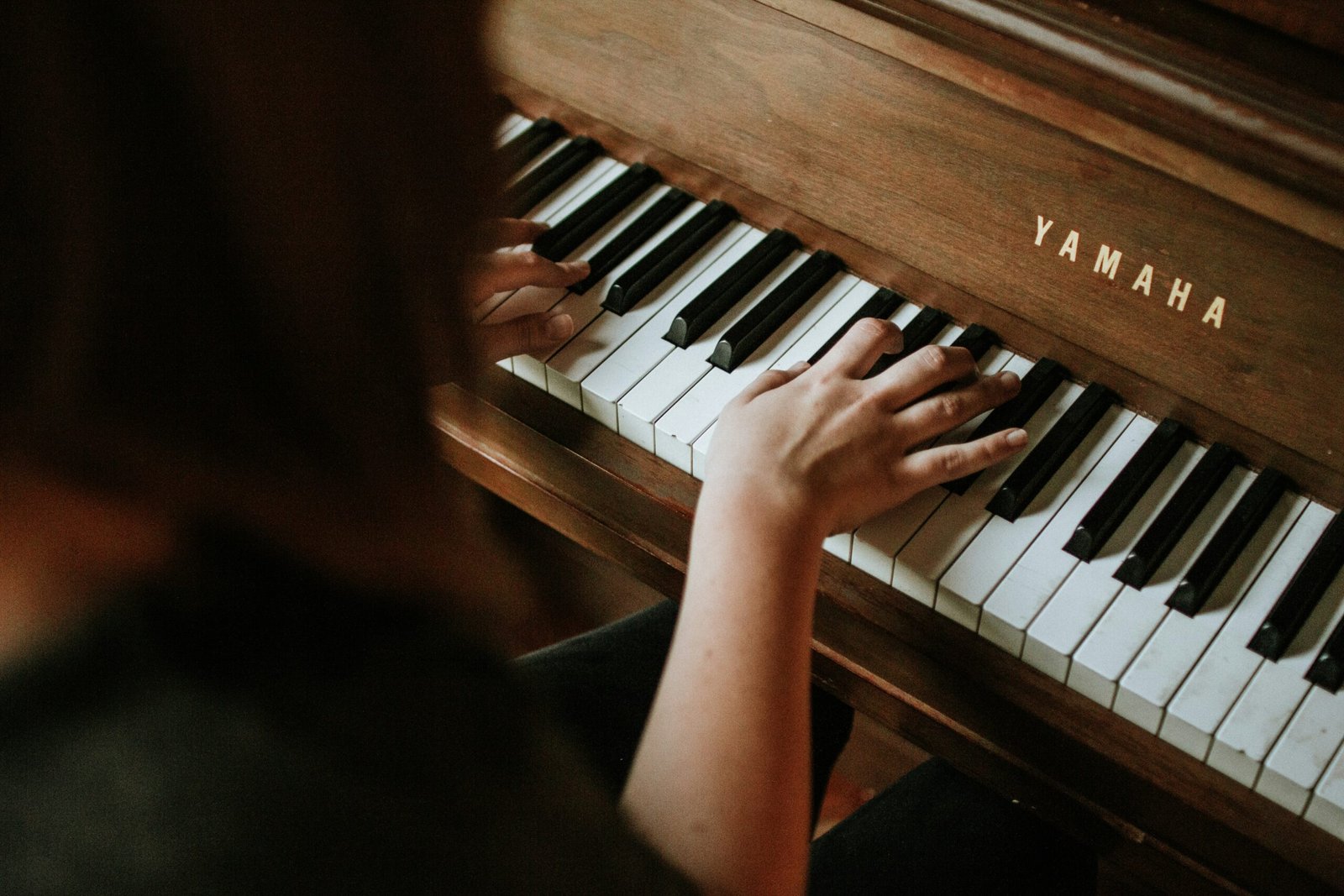Piano retuning is an indispensable aspect of maintaining the instrument’s sound quality and overall longevity. At its core, piano tuning refers to the process of adjusting the tension of the strings to ensure that the notes produced are accurate and harmonious. A well-tuned piano not only enhances the listening experience but also preserves the instrument’s structural integrity over time, thereby making regular tuning essential for both professional musicians and casual players alike.
Understanding the costs associated with piano retuning is paramount for piano owners, music enthusiasts, and beginners. The financial implications can vary widely based on several factors including the type of piano, location, and the expertise of the technician performing the service. For instance, grand pianos may require a more intricate tuning process than upright pianos, subsequently affecting the overall cost. Additionally, hiring a highly skilled technician often results in a higher fee but can guarantee superior results, reflecting the quality of the service received.
For beginners, awareness of these variables is essential, as it aids in budgeting for regular maintenance. For enthusiasts and seasoned players, having a grasp of retuning costs helps in making informed choices when seeking a professional for tuning. Overall, knowing the nuances of the retuning process and the associated financial aspects contributes significantly to the effective upkeep of the piano. This knowledge ultimately enhances the enjoyment of playing and allows musicians to focus on their artistry without the distraction of an out-of-tune instrument. Engaging with a skilled piano tuner ensures that your piano remains in optimal condition, giving you the best possible sound quality throughout its lifecycle.
What is Piano Tuning?
Piano tuning is the process of adjusting the tension of the piano strings to ensure that they produce the correct pitches when played. Each string of a piano is designed to produce a specific note, and over time, changes in temperature and humidity, as well as general wear and tear, can affect the instrument’s tuning stability. This leads to a disparity in sound quality, necessitating regular adjustments to restore the piano to optimal performance. The primary purpose of piano tuning is to refine the sound produced by the instrument, ensuring that it delivers a harmonious and pleasing auditory experience.
The frequency with which a piano should be tuned depends on various factors, including usage, environmental conditions, and the type of piano. Generally, it is recommended to tune a piano at least once or twice a year. However, for pianos that are played frequently or are exposed to fluctuating humidity and temperature, more frequent tuning may be necessary. Regular tuning not only enhances sound quality but also contributes to the longevity of the instrument. By maintaining the correct tension of the strings, a well-tuned piano can prevent potential damage to its internal components, thus preserving its durability over time.
The benefits of regular piano tuning extend beyond simply meeting the musical standards. A properly tuned piano can inspire musicians to practice more, improve their performance, and foster a deeper appreciation for music. Furthermore, the aesthetic appeal of a beautifully tuned instrument enhances any setting—whether it is for a public performance, recording, or simply personal enjoyment. Therefore, engaging in regular tuning sessions is vital to ensuring that a piano continues to provide its full range of musical expression, making it an essential aspect of piano maintenance.
Factors Influencing the Cost of Piano Retuning
The cost of piano retuning can vary significantly due to several influencing factors. One of the primary considerations is the type of piano being tuned. Generally, grand pianos tend to be more expensive to tune than upright or digital pianos. This difference is attributed to the complexity of their mechanics and the additional time required for skilled technicians to achieve optimal tuning results.
Another important factor is the frequency with which the piano is played. Pianos that are played regularly may require more frequent tuning, which in turn can increase overall costs. For instance, instruments used for professional performances or regular teaching sessions will likely need tuning more often than those used sporadically at home. Consequently, regular players should anticipate routine tuning appointments to maintain their piano’s condition.
Environmental conditions also play a crucial role in determining tuning costs. Factors such as temperature and humidity can greatly affect a piano’s tuning stability. In environments with fluctuating conditions, the strings may contract or expand, leading to more frequent tuning needs. Hence, pianos located in humid or excessively dry settings might incur higher costs in terms of maintenance.
The current condition of the piano is another pivotal aspect. A piano that has not been tuned in a long time may require more extensive work to bring it back to standard pitch, potentially resulting in an increased fee. Additionally, if a technician identifies structural issues or necessary repairs during the tuning process, these may further contribute to the overall expenses.
Regional pricing variances should not be overlooked either. Depending on the local market and demand for piano tuners, costs can fluctuate significantly from one area to another. Finally, the experience level of the tuner can also impact the overall expense. More seasoned professionals may charge higher rates, reflecting their expertise and the quality of service provided.
Average Cost of Retuning a Piano
Retuning a piano is an essential maintenance task, ensuring that the instrument produces the best possible sound. The cost of retuning can vary significantly based on several factors, including the type of piano, location, and specific services required. On average, the cost for a standard piano retuning ranges from $100 to $200. However, this figure can fluctuate depending on whether the instrument is an upright or a grand piano.
Upright pianos generally incur lower retuning costs, ranging from $100 to $150, due to their simpler structure and fewer strings. In contrast, grand pianos often require more detailed work due to their complex design, resulting in higher fees typically from $150 to $200. It is worth noting that these prices might not include additional services such as pitch correction or repairs, which can further increase the overall cost.
In some cases, if a piano has not been tuned for an extended period, it may require pitch correction, which is an adjustment process that brings the instrument back to standard tuning. This service can add an additional $50 to $100 to the initial cost of retuning. Furthermore, while tuning, a technician may identify necessary repairs to the piano’s components, such as broken strings or action adjustments. These repairs can vary widely in price, depending on the severity of the issue and the specific parts involved.
Overall, when budgeting for retuning a piano, it is prudent to consider the base costs, the potential for additional services like pitch correction, and any potential repairs that may be discovered. Consulting with a professional piano tuner will offer tailored estimates based on the specific needs of your instrument, helping to maintain its condition and sound quality over time.
How Often Should a Piano Be Tuned?
Piano tuning is an essential aspect of maintaining the instrument’s performance and sound quality. Generally, it is recommended that a piano be tuned at least twice a year. This frequency helps ensure that the instrument remains in optimal condition and that the tones produced are harmonious. Regular tuning caters to the inherent properties of pianos, as they are susceptible to various environmental factors that can affect their tuning stability.
One critical factor influencing piano tuning frequency is humidity and seasonal changes. Pianos are particularly sensitive to fluctuations in temperature and moisture, which can cause the wooden components of the piano to expand or contract. In regions with significant seasonal variations, it may be necessary to adjust the tuning schedule accordingly. For instance, during the summer or winter months, where humidity levels drastically change, you might find that your piano goes out of tune more frequently than usual.
Additionally, certain signs indicate that a piano may be due for tuning. Musicians should be vigilant for notes sounding flat or sharp, which are clear indicators that a tuning adjustment is necessary. If a player notices that the instrument’s sound lacks its typical clarity and resonance, it may also be a signal that the piano needs attention. Regular practice can exacerbate these issues, particularly for those actively using their piano for performance or lessons, underscoring the need for frequent tuning.
In conclusion, while the general guideline of tuning a piano twice a year serves many well, it is essential to consider the specific usage, environmental influences, and personal observations. A tailored approach to tuning frequency will contribute significantly to a piano’s longevity and musicality.
DIY vs. Professional Piano Tuning
Piano tuning is an essential maintenance task that ensures the instrument produces the best possible sound. For many piano owners, the choice between DIY tuning and hiring a professional often brings forth several considerations, including cost-effectiveness and the quality of the resulting sound. The DIY route may initially appear appealing due to the potential for cost savings. However, those who opt for this approach must equip themselves with the necessary tools, such as a tuning lever, mutes, and an electronic tuner or tuning app. While these tools are relatively accessible and affordable, novice tuners may struggle with the intricate mechanics of piano strings and their delicate interactions.
One of the primary advantages of DIY piano tuning is the significant reduction in costs. Instead of paying a professional tuner, enthusiasts can take on the task themselves, saving money in the process. However, undertaking this task without sufficient knowledge and experience can lead to unfavorable outcomes. Piano tuning is not merely about tightening and loosening strings; it requires a nuanced understanding of the instrument’s acoustic properties, which can vary significantly across different piano brands and models. Poor tuning can result in further issues, such as string damage or intonation problems, ultimately leading to expensive repairs.
Hiring a professional piano tuner mitigates these risks substantially. Professional tuners possess the expertise, precision, and experience necessary to bring an out-of-tune piano back to optimal sound quality. Their training allows them to navigate the complexities of the piano’s inner workings effectively, ensuring each note is in perfect pitch and harmony with the others. Moreover, a professional tuner can offer additional insights and maintenance tips for preserving the instrument’s longevity. For piano owners seeking peace of mind and assurance of quality, investing in professional tuning services becomes a worthwhile expenditure, balancing the initial costs against the long-term benefits.
Tips to Save Money on Piano Retuning
Retuning a piano is essential for maintaining its playability and overall condition. However, it can also become an expensive undertaking if not managed properly. Fortunately, there are several strategies that can be employed to save money on piano retuning.
One effective method is to consider bundling services. Many piano tuners offer package deals that include tuning and minor repairs at a discounted rate. By scheduling both a tuning and any necessary repairs at the same time, you can often receive a better value for your investment. This not only ensures that your piano sounds its best but also helps in avoiding future complications that may arise from neglect.
Regular maintenance is another key to saving money. By committing to a routine schedule of piano tuning—typically every six months to a year—you can prevent the need for costly corrections down the line. Consistent tuning allows the instrument to remain stable and reduces the strain on the strings, ultimately extending the life of the piano and minimizing repair costs.
When selecting a piano tuner, it’s advisable to choose a reliable local technician. Conduct thorough research through reviews and recommendations from other musicians or music teachers in your area. A competent local tuner may provide competitive rates and may also be able to offer personalized services that may save you money in the long run.
Lastly, consider exploring tuning schools or apprentices for budget-friendly alternatives. Many aspiring tuners seek to hone their skills and often provide services at a lower rate or as part of their training. While you should ensure that these individuals have adequate supervision or credentials, this can be a cost-effective solution for routine maintenance.
By implementing these strategies, you can enjoy the benefits of a well-tuned piano without incurring exorbitant costs.
FAQs About Piano Retuning Costs
When considering the cost of piano retuning, many individuals have specific questions that arise naturally. One of the most common inquiries revolves around the duration of a standard tuning session. Generally, a professional piano tuner requires about one to two hours to complete the tuning process, depending on the piano’s condition and the amount of adjustment needed. Regular maintenance can help ensure that the tuning process remains as efficient as possible.
Another frequently asked question pertains to whether it is possible to tune a piano less often to reduce expenses. While it may seem practical to delay tuning sessions in an effort to save money, this can lead to long-term complications. Pianos that are not tuned regularly can fall out of tune more quickly and may require more extensive work to restore, ultimately increasing costs. Therefore, it is generally advisable to adhere to a regular tuning schedule, typically every six months to a year, particularly for pianos that are played frequently.
Lastly, many potential clients are interested in whether piano tuners offer seasonal discounts or promotions. Some tuners do provide special rates during specific times of the year, particularly during the off-peak season. It is advisable to inquire about any available promotions or discounts during your search for a piano tuning service, as this could yield cost savings.
Conclusion
In conclusion, understanding the costs associated with retuning a piano is essential for any piano owner. Regular tuning ensures that your instrument remains in optimal condition, maintaining its tonal quality and playability. The price of piano tuning can vary, influenced by factors such as the tuner’s expertise, the condition of the piano, and its geographical location. On average, one can expect to pay anywhere from $100 to $200 for a professional tuning session. While this might seem like a considerable expenditure, it is crucial to recognize the long-term benefits that arise from investing in regular piano maintenance.
Ensuring that your piano is tuned at least once or twice a year can prolong the life of your instrument and enhance your playing experience. Regular tuning helps to preserve the integrity of the piano’s strings and can prevent more significant issues that might arise from neglecting maintenance. Additionally, a well-tuned piano encourages better practice habits and performance quality, which can be particularly important for students and professional musicians alike.
As you contemplate the costs associated with piano tuning, consider the returns on your investment. A well-maintained piano elevates the overall experience of playing an instrument, leading to more enjoyable and productive practice sessions. Therefore, it is highly recommended to connect with a trusted local piano tuner who can provide you with tailored advice and services to ensure your piano remains in top-notch condition. Taking this step not only safeguards your instrument but also supports your musical journey.


